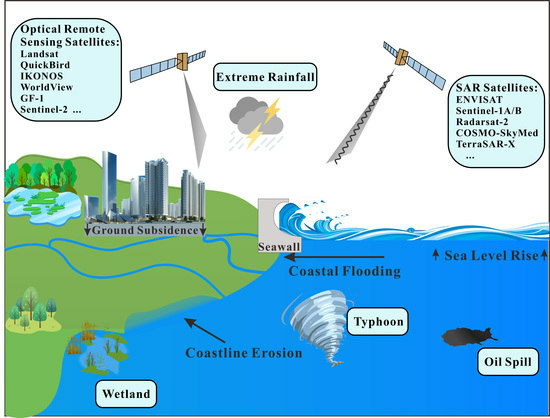“Israel is back in control.” That is how Naftali Bennett described the success of his government at a press conference at which he announced his decision to call elections. From the first to the last day, it was the heart of the ideology of the Bennett government. After a long period of frustrating earthquakes, under previous governments, Bennett presented himself as exactly what the State of Israel needed – an effective executive director.
In line with this goal, the leaders of the parties that made up the coalition of political leaders have become something like vice presidents in charge of accelerating the implementation of reforms – in transport, the economy, the health care system. “We came to work,” Bennett repeated. In the office, it doesn’t matter what the worldview of the person sitting next to you is; what matters is efficiency and productivity.
It was the realization of a fantasy that resonated with the public for years: Israel needs a good executive director. The request was supported by economic columnists and the media in general. In an era in which all spheres of life are subordinated to economics and the logic of instrumentality, there is really no justification for the ideological politics of the last century. A technical solution needs to be found for each problem, and the leader is a manager who sits at the head of a team of experts and engineers. Decisions are made rationally based on quantitative indices. Conflict with the Palestinians is also a matter of governance and maintenance.
All of this was particularly suited to the conditions that accompanied the coronavirus pandemic: a health-economic crisis that is perceived as a complex logistical problem that needs to be addressed with the help of experts.
But there was also a broader social context that legitimized the “government of change”: the boom of the high-tech industry. The industry grew under Benjamin Netanyahu, who himself has sometimes been described as an effective CEO. But when Netanyahu turned to messianic guidelines to pave its religious-nationalist base, the high-tech nation separated from him and set out to crown the king of high technology in his form and image.
Bennett, a former general manager of the Jesha settlement council, and a religious believer, is actually quite an ideological person. But to come to power, he rejected old ideologies and emerged as a high-tech reserve member – a modern alternative to the reserve major generals and chiefs of staff who led the country in the past. Throwing himself into action, he quickly implemented reforms that appealed to international credit rating companies such as Moody’s.
For decades, secular columnists in these newspapers and other platforms have predicted a future for Israel that was as clear as it was bleak. Year after year, they argued, Israel is becoming more religious and nationalistic, and will eventually become quasi-Iran. That would have happened a long time ago if the decisive element had not appeared in the fabric of Israeli life: the high-tech economy. High technology is the engine that brings about social and ideological change no less dramatic than that introduced by religion. He is much stronger than all kinds of rabbis who try to force people to “return to the faith,” like Amnon Yitzhak, or like the “Department of Jewish Identity” of the Ministry of Religious Affairs. High technology creates a rational, secular ideology and worldview; it has an appealing glow and an aura of success.
Every social group that intertwines its destiny with high technology is moving towards the political center. This is especially true for parts of the Mizrahi middle class and the religious Zionist movement. As a result, a significant segment of the right-wing camp became a post-ideological social group that turned its back on Netanyahu and gave its vote to center-right parties. The more high-tech shot forward and the number of local unicorns swelled, the more segments of society jumped on the train. Members of the Arab community who benefited from economic growth also preferred to leave national identity aside. Technological capitalism has shattered all traditional structures.
Ultimately, the Bennett-Lapid government program was to accelerate and perpetuate this process: to lead to a situation where most of the Israeli economy is based on high-tech industry and thus create a stable coalition around the sector, both political and social, that will block all counterprocess. And maybe it works. There is no reason to belittle the power of high technology – the most transformative force in the world today.
But the high-tech economy has an Achilles heel. The rapid decline in the value of technology companies that occurred on the stock exchanges this spring suggests that the hype surrounding high technology may have been exaggerated. As air leaks out of the high-tech bubble, social elements who have recently come to the party will return to their traditional ideological foundations. At the same time, technicians are also causing hostility, especially among those who are unable to participate in the technology celebration, and are also economically trampled on.
From this perspective, the future of the coalition of change is intertwined with the future of the high-tech economy and the ideology it creates, both in Israel and internationally. From this moment on, dark clouds are gathering on the horizon of the technocrat government. The loss of a parliamentary majority by the government of Emmanuel Macron in France, which was based on a similar reasoning, reflects growing opposition to the idea of a chief executive.
Leaders of this trait can show effectiveness, but often suffer from a lack of an essential attribute of the political field: charisma. Naftali Bennett illustrated this well with his restrained bar-mitzvah smiles. And in our time it seems that part of the public still longs for a charismatic leader who is carried on the waves of national and religious emotions.
Even technology companies themselves are creating eccentric CEOs who are chaotically inclined, like Elon Musk. Their form of behavior is already less subordinated to rational technological logic, and more cryptocurrency. It is possible that the next leader of the capitalist center in Israel will possess the same style. But it already depends on how well bitcoin works.
How did Palestine become Israel?
In 1947, the United Nations Plan for the Partition of Palestine was passed. This triggered the Palestinian War of 1947-1949. and led in 1948 to the establishment of the State of Israel in part of Mandate Palestine when the Mandate came to an end.
Why did Israel secede from Palestine? The history of the Israeli “Palestinian conflict” began with the establishment of the State of Israel in 1948. On the same subject : Latinos unite against the United States. This conflict stemmed from the inter-communal violence in Mandate Palestine between Arabs and Jews in 1920, and erupted into full-scale hostilities in 1947. «48 civil war.
Why did Britain give Palestine to Israel?
In 1917, in order to gain Jewish support for British efforts in World War I, the British Balfour Declaration promised the establishment of a Jewish national home in Palestine under Ottoman control. Read also : The best Netflix movies and shows: trends June 23, 2022.
Why did the British take Palestine?
The British mandate for Palestine was the outcome of the First World War, reflecting the collapse of pre-war empires and the emergence of nations that demanded self-determination.
When did Britain give up Palestine?
The end of the British mandate for Palestine was formally achieved through the Palestinian Act of 29 April 1948. A public statement prepared by the Colonial and Foreign Offices confirmed the cessation of British responsibility for the administration of Palestine from midnight on 14 May 1948.
What was Palestine before Israel?
In modern times, the area was ruled by the Ottoman Empire, then the United Kingdom, and since 1948 it has been divided into Israel, the West Bank and the Gaza Strip. See the article : No, Texas cannot legally break away from the US, despite a popular myth.
What country was Israel before?
The British controlled Palestine until Israel, in the years after the end of World War II, became an independent state in 1947.
When did Israel belong to Palestine?
In 1947, the United Nations Plan for the Partition of Palestine was passed. This started the Palestinian War from 1947 to 1949 and led in 1948 to the establishment of the State of Israel in part of Mandate Palestine after the mandate came to an end.
Is Israel formed from Palestine?
Israel becomes a state In May 1948, less than a year after the Palestine Partition Plan was introduced, Britain withdrew from Palestine and Israel declared itself an independent state, implying readiness to implement the Partition Plan.
How did Palestine become Israel?
In 1947, the United Nations Plan for the Partition of Palestine was passed. This started the Palestinian War from 1947 to 1949 and led in 1948 to the establishment of the State of Israel in part of Mandate Palestine after the mandate came to an end.
Were Palestine and Israel the same country?
“Israel” is the name of the state founded in Palestine in 1948 for the Jewish people. Both names are of ancient origin. Another term, ‘Palestinian territories’, refers to areas of Palestine known as the West Bank and Gaza Strip.
Is Israel its own continent?
Israel is located in the Middle East, along the eastern shores of the Mediterranean Sea, bordering Lebanon, Syria, Jordan and Egypt. It is located at the junction of three continents: Europe, Asia and Africa. Long and narrow in shape, the country is about 470 km long.
Is Israel part of Asia or Africa? Israel is located at the crossroads of Europe, Asia and Africa. Geographically, it belongs to the Asian continent and is part of the Middle East region. In the west, Israel is bordered by the Mediterranean Sea. Lebanon and Syria border it to the north, Jordan to the east, Egypt to the southwest and the Red Sea to the south.
Is Israel a country on its own?
Israel is a small country in the Middle East, the size of New Jersey, located on the east coast of the Mediterranean Sea and borders Egypt, Jordan, Lebanon and Syria.
Is Israel a country or a state?
Israel, Arabic IsrÄ Ê¾Ä «l, officially the State of Israel or the Hebrew Medinat Yisraʾel, a state in the Middle East, located at the eastern end of the Mediterranean Sea.
Why did Israel become its own country?
After World War II, the United Nations (formerly the League of Nations) adopted a Partition Plan, basically dividing Palestine into an Arab and Jewish state, with Jerusalem under international control. This led to the end of Britain’s mandate and Israel’s declaration of independence in May 1948. “
Is Israel a country or a continent?
Israel is a country in the Middle East that Jews, Christians and Muslims consider a Holy Land. The capital of the country is Jerusalem, while its financial and technological center is Tel Aviv. The official languages spoken in Israel are Hebrew and Arabic.
Is Israel a country a country?
Overview of Israel. Israel, the only Jewish nation in the world, is a small country on the east coast of the Mediterranean. Due to its relatively small size, the country has played a major role in global affairs.
Which continent Israel belongs?
Which country Israel belongs to?
Israel, Arabic IsrÄ Ê¾Ä «l, officially the State of Israel or the Hebrew Medinat Yisraʾel, a state in the Middle East, located at the eastern end of the Mediterranean Sea.
Is Israel part of Europe or Asia?
Israel is located at the crossroads of Europe, Asia and Africa. Geographically, it belongs to the Asian continent and is part of the Middle East region. In the west, Israel is bordered by the Mediterranean Sea.
Is Israel in two continents?
Israel is a country that spreads over three continents: Europe, Asia and Africa.
Is Palestine a country or a state?
Palestine is an autonomous entity, not a state. Palestine has not yet met the de facto demands of statehood. Premature recognition of Palestine as a state would only further destabilize the area.
Is Palestine a recognized state? The declaration was immediately recognized by a number of countries, and by the end of the year, more than 78 countries had recognized the declared Palestinian state. As of July 31, 2019, it was recognized by 138 of the 193 member states of the United Nations (UN) and two non-member states (Israel recognized 165).
Is Palestine a country or region?
Since 1948, the region has been divided into Israel, the West Bank and the Gaza Strip. The state of Palestine, a de jure sovereign country, is in constant conflict over sovereignty with Israel.
Does Saudi Arabia recognize Israel?
Saudi Arabia has not recognized Israel since its independence in 1948 due to the Arab-Israeli conflict. Traditionally, the official Saudi policy towards the Israeli-Palestinian conflict has been support for the Palestinian Arabs and against Israel.
Does the United Arab Emirates recognize Israel? Israel and the UAE signed an agreement on August 13, 2020, with the mediation of US President Donald Trump. Under the agreement, Israel and the UAE will establish full diplomatic relations, with the UAE becoming the third Arab state, other than Egypt and Jordan, to fully recognize Israel.
Can Israel go to Saudi Arabia?
Restrictions on use by Israel In January 2020, the Israeli Interior Minister announced that Israeli citizens, Muslims and Jews, could travel to Saudi Arabia for religious and business purposes. These countries have their own bans on Israeli entry.
Can you go to Arab countries if you’ve been to Israel?
You can cross land borders from Israel to Jordan or Egypt. There are no open borders between Israel and Syria or Lebanon.
Can an Israeli enter Saudi Arabia?
International travelers can now visit Saudi Arabia with an Israeli stamp in their passport provided they have the following documentation: A valid passport of a country whose citizens are allowed to enter Saudi Arabia. Valid visa for Saudi Arabia or electronic visa (eVisa)
Does Saudi Arabia supports Israel?
Saudi Arabia has not recognized Israel since its independence in 1948 due to the Arab-Israeli conflict. Traditionally, the official Saudi policy toward the Israeli Palestinian conflict has been support for Palestinian Arabs and against Israel.
Does the US recognize Israel?
US-ISRAEL RELATIONS The United States was the first country to recognize Israel as a state in 1948, and the first to recognize Jerusalem as the capital of Israel in 2017. Israel is a major partner to the United States, and Israel has no greater friend than the United States.
Does the US recognize Israel or Palestine? Although the United States does not recognize the State of Palestine, it recognizes the Palestinian Liberation Organization (PLO) as a legitimate representative entity for the Palestinian people; after the Oslo agreement, it recognized the Palestinian National Authority as the legitimate Palestinian government of Palestine …
Why did America recognize Israel?
In the spring of 1948, Palestine became involved in American domestic politics. Jewish votes were important to President Truman in the upcoming election. Key advisers, particularly Clark Clifford, forced him to stand firm for the division of the UN to get those votes.
When did the United States recognize Israel?
At midnight on May 14, 1948, the Provisional Government of Israel proclaimed the new State of Israel. On the same date, the United States, in the person of President Truman, recognized the Provisional Jewish Government as the de facto authority of the Jewish state (de jure recognition was extended on January 31, 1949).
Did the US recognize Israel?
The United States was the first country to recognize Israel as a state in 1948, and the first to recognize Jerusalem as the capital of Israel in 2017.
What is the US relationship with Israel?
The United States and Israel are strong partners and friends. Americans and Israelis are united by our shared commitment to democracy, economic prosperity and regional security. Our partnership has never been stronger.
Does Israel support the US?
The US-Israel partnership is firmly the United States and Israel are strong partners and friends. Americans and Israelis are united by our shared commitment to democracy, economic prosperity and regional security. Our partnership has never been stronger.
Are the US allies with Israel?
The United States designated Israel as a major non-NATO ally and was the first country to be granted that status alongside Egypt in 1987; Israel and Egypt remain the only countries in the Middle East that have this label.
WHO recognizes Israel as a country?
| Albania | China |
|---|---|
| Egypt * | Jordan * |
| Lithuania | Philippines |
| San Marino | United Arab Emirates * |
When was Israel recognized as a country?
Citation: Statement by President Truman recognizing the State of Israel, May 14, 1948.
Who Recognised Israel as a country?
U.S. President Harry Truman was the first world leader to officially recognize Israel as a legitimate Jewish state on May 14, 1948, just eleven minutes after its creation. His decision came after much discussion and advice from White House staff who had differing views.
What does God say about Israel?
The most frequently quoted text is 2 Chronicles 6: 5-6, in which King Solomon quotes God who says, “Since the day that I brought forth my people out of the land of Egypt, I have not chosen a city in all the tribes of Israel to build a house. the name shall be there, and I have not chosen anyone to be prince over my people Israel, but I have …




